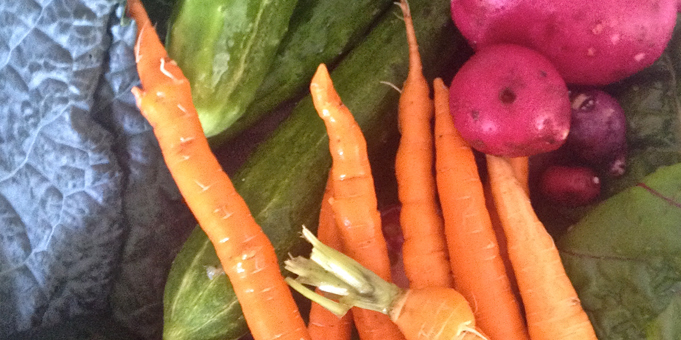The United Nations’ Food and Agriculture Organization estimates that the meat industry generates nearly one-fifth of the man-made greenhouse gas emissions that are accelerating climate change worldwide – more than the entire transportation sector! To make matters worse, producing meat also requires a huge amount of water. An estimated 1,800 to 2,500 gallons of water go into a single pound of beef. Amazingly, the livestock industry also uses almost 50% of the corn produced in the United States as feed for the animals. The meat industry uses so much energy to produce grain for livestock that if instead we used the grain to feed people following a vegetarian diet, it would be enough to feed about 840 million people.[1]
Imagine how much carbon and resources we could save if we ate less meat. Even just eating meat one less day a year would make a difference.
For instance, if over the course of a year you:
- Eat one less burger a week, it would be the equivalent of taking your car off the road for 320 miles.
- Skip meat and cheese one day a week with your family, it would be the equivalent of taking your car off the road for five weeks – or reducing everyone’s daily showers by 3 minutes.
- Skip steak once a week with your family, it would be the equivalent of taking your car off the road for nearly three months.
- And if the entire U.S. did not eat meat or cheese for just one day a week, it would be the equivalent of not driving 91 billion miles – or taking 7.6 million cars off the road.
As you can see, the impact of not eating meat can add up. Join The Earth Day Network in pledging to not eat meat once a week. If you already don’t eat meat once a week, why not try two days a week or three! You could even begin a full vegetarian diet if you’re up for it.
Meatless Monday has a collection of tips and alternative meal options to get you started.
http://www.meatlessmonday.com/about-us/why-meatless/
https://www.earthday.org/take-action/about-meatless-monday/


Recently on Twitter